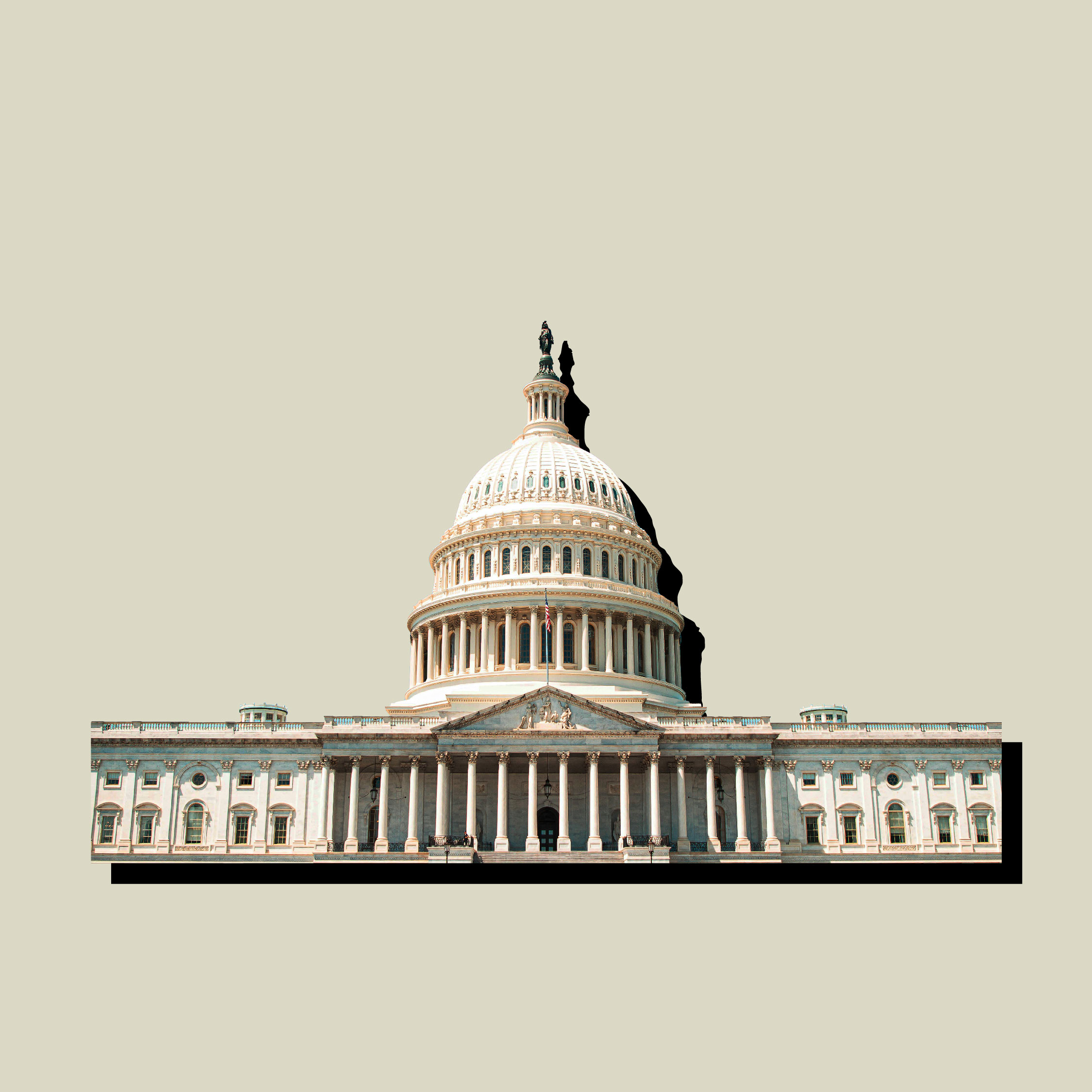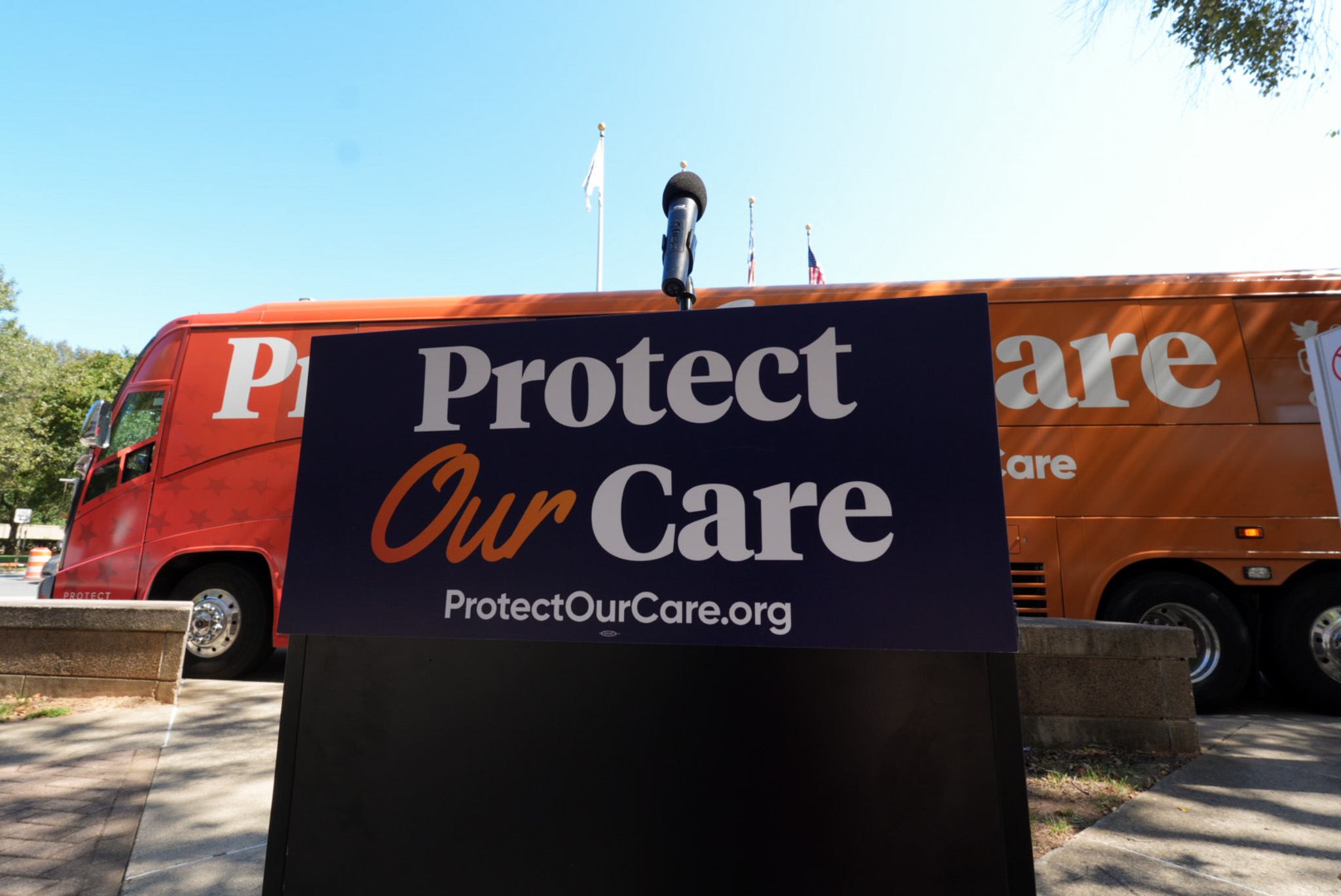
In the Words of the Wall Street Journal Editorial Board, “Our Worst Fears About Mr. Kennedy Are Coming True.”
Welcome to Public Health Watch, a weekly roundup from Protect Our Care tracking catastrophic activity as part of Donald Trump’s sweeping war on health care. From installing anti-vaccine zealot RFK Jr. as Secretary of HHS to empowering Elon Musk to make indiscriminate cuts to our public health infrastructure, including the National Institutes of Health and the Centers for Disease Control, Donald Trump is endangering the lives of millions of Americans. Protect Our Care’s Public Health Watch will shine a spotlight on the worst of the Trump/RFK/Musk war on vaccines, science and public health and serve as a resource for the press, public and advocacy groups to hold them accountable.
What’s Happening In Public Health?
Catastrophic Cuts Are Creating Chaos And Endangering Americans’ Health And Scientific Innovation
Wall Street Journal: RFK Jr. Plans 10,000 Job Cuts in Major Restructuring of Health Department Health and Human Services Secretary Robert F. Kennedy Jr. is set to significantly cut the size of the department he leads, reshaping the nation’s health agencies and closing regional offices, according to documents viewed by The Wall Street Journal. Kennedy is set to announce Thursday the planned changes, which include axing 10,000 full-time employees spread across departments tasked with responding to disease outbreaks, approving new drugs, providing insurance for the poorest Americans and more. The worker cuts are in addition to roughly 10,000 employees who opted to leave the department since President Trump took office, through voluntary separation offers, according to the documents. The voluntary departures and the plan, if fully implemented, would result in the department shedding about one-quarter of its workforce, shrinking to 62,000 federal health workers. It will also lose five of its 10 regional offices. The documents viewed by the Journal say essential health services won’t be affected.
- Politico: RFK Jr.’s massive cuts stun staff, leave senior employees scrambling Robert F. Kennedy Jr.’s move to gut and reorganize the federal health department shocked many people tasked with making it happen, and left others fearful that everything from the safety of the nation’s drug supply to disease response could be at risk. The disaster preparedness agency in the Department of Health and Human Services has just two days to prepare a plan to fold itself into the Centers for Disease Control and Prevention, according to an HHS official, granted anonymity for fear of retribution. Health staffers entrusted with regulating prescription drugs, managing public health programs and conducting scientific research were blindsided by the cuts, with many learning the details from a Wall Street Journal story published early on Thursday, several people familiar with the matter said. “There’s very few people who actually know what’s happening,” said one health official granted anonymity to describe the internal reaction. House Energy and Commerce Chair Brett Guthrie (R-Ky.) also said he learned of the cuts from news reports. Sen. Bill Cassidy (R-La.), chair of the committee that oversees the health department, found out from Kennedy during a breakfast Thursday just before the news broke. The hushed-and-hurried nature of Thursday’s announcement, which called for terminating 10,000 workers, the elimination of departments and the closure of regional offices, underscores how Kennedy as health secretary intends to impose his singular vision on a department he has chided as a bloated bureaucracy that has lost its way.
New York Times: Trump Administration Abruptly Cuts Billions From State Health Services The Department of Health and Human Services has abruptly canceled more than $12 billion in federal grants to states that were being used for tracking infectious diseases, mental health services, addiction treatment and other urgent health issues. The cuts are likely to further hamstring state health departments, which are already underfunded and struggling with competing demands from chronic diseases, resurgent infections like syphilis and emerging threats like bird flu. State health departments began receiving notices on Monday evening that the funds, which were allocated during the Covid-19 pandemic, were being terminated, effective immediately.
New York Times: H.H.S. Scraps Studies of Vaccines and Treatments for Future Pandemics The Trump administration has canceled funding for dozens of studies seeking new vaccines and treatments for Covid-19 and other pathogens that may cause future pandemics. The government’s rationale is that the Covid pandemic has ended, which “provides cause to terminate Covid-related grant funds,” according to an internal N.I.H. document viewed by The New York Times. But the research was not just about Covid. Nine of the terminated awards funded centers conducting research on antiviral drugs to combat so-called priority pathogens that could give rise to entirely new pandemics. “This includes the antiviral projects designed to cover a wide range of families that could cause outbreaks or pandemics,” said one senior N.I.H. official who spoke on condition of anonymity for fear of retaliation. The vaccine research also was not focused on Covid, but rather on other coronaviruses that one day might jump from animals to humans.
Stat: Cancer research, long protected, feels ‘devastating’ effects under Trump For decades, cancer held a near-sacred spot in the American biomedical enterprise, commanding the lion’s share of research dollars and support from both Democrats and Republicans. Now, not even cancer is protected from political change. More than a dozen people in the cancer field — including researchers, clinicians, policy experts, advocates, and patients — told STAT that government and congressional actions since President Trump’s inauguration are threatening treatment for cancer patients and the development of new therapies or cures. As they faced what felt to them like a bombardment of cuts, delays, and policy changes to science, the word members of the cancer community used over and over to describe the changes was “devastating.”
New York Times: ‘Chaos and Confusion’ at the Crown Jewel of American Science A week after Donald J. Trump was inaugurated, a senior scientist at the National Institutes of Health was preparing to give an invited talk at a scientific meeting when an urgent call came in from an administrative assistant. There is a total communications ban, the scientist was told, and you cannot give the speech. As soon as the scientist got back to the office, another ban went into effect — one that prohibited researchers from submitting papers to journals for publication. Seven senior investigators working in different parts of the National Institutes of Health described rules put in place on orders from the Department of Government Efficiency that risk hampering and undermining American medical science. All spoke on the condition of anonymity because they feared for their jobs for speaking publicly. One said that DOGE had begun a reign of “chaos and confusion.” The scientists warned that it had the potential to seriously weaken the N.I.H. — the crown jewel of American science, with a vast network of thousands of researchers in 27 centers dedicated to treating disease, improving health and funding medical research.
Stat: Hours after NIH director confirmed, the agency tackles one of his priorities — ending ‘censorship’ in science In October, Jay Bhattacharya, then a health economist at Stanford University, posted on X: “If you favor government control of misinformation, you are an enemy of free speech.” On Wednesday, on the morning after his confirmation as director of the National Institutes of Health, the agency directed staff to compile a list of grants and contracts related to “fighting misinformation or disinformation” — a step that in recent weeks has preceded the termination of research funding in areas that run counter to the Trump administration’s priorities. The early morning email, marked “URGENT,” asked contracting officers at the NIH to respond by “noon today” with information on any contract that “may be related to any form of censorship at all or directing people to believe one idea over another related to health outcomes.” It goes on to list examples including contracts to promote vaccine uptake, or public health messages about the “dangers of Covid or not wearing masks.” Staff were also instructed to search for keywords such as media literacy, social media, social distancing, and lockdown. “This should address any contract that could be used to ‘censor Americans,’” the email concluded.
Wall Street Journal: Trump Administration Plans to Freeze Family-Planning Grants The Trump administration is moving to freeze tens of millions of dollars in federal family-planning grants to certain organizations while it investigates whether the money was used for diversity efforts, people familiar with the matter said. The Health and Human Services Department is weighing an immediate freeze of $27.5 million in grants, an agency spokesman said after The Wall Street Journal reported the plans. The groups that would be subject to the freeze include Planned Parenthood affiliates, the people familiar with the matter said. Altogether, the groups were set to get a total of about $120 million this year. The freeze, which could be made public as soon as this week, would suspend funding meant to support, in the U.S., pregnancy testing, provision of contraception, treatment of sexually transmitted infections and evaluation and counseling for infertility. An HHS spokesman said the department was reviewing grant recipients to make sure they comply with President Trump’s executive orders and federal law.
New York Times: U.S. to End Vaccine Funds for Poor Countries The Trump administration intends to terminate the United States’ financial support for Gavi, the organization that has helped purchase critical vaccines for children in developing countries, saving millions of lives over the past quarter century, and to significantly scale back support for efforts to combat malaria, one of the biggest killers globally. The administration has decided to continue some key grants for medications to treat H.I.V. and tuberculosis, and food aid to countries facing civil wars and natural disasters. Those decisions are included in a 281-page spreadsheet that the United States Agency for International Development sent to Congress Monday night, listing the foreign aid projects it plans to continue and to terminate. The New York Times obtained a copy of the spreadsheet and other documents describing the plans.
Politico: Long Covid office ‘will be closing,’ Trump administration announces The Trump administration is shuttering HHS’ long Covid office as part of its reorganization, according to an internal email seen by POLITICO. The email was sent Monday by Ian Simon, the head of the Office of Long Covid Research and Practice. It said the closing is part of the Department of Health and Human Services’ reorganization. The office’s handful of staff were not told whether they would remain employed in the federal government or whether the office would close immediately or wind down operations over time.
ProPublica: NIH Ends Future Funding to Study the Health Effects of Climate Change The National Institutes of Health will no longer be funding work on the health effects of climate change, according to internal records reviewed by ProPublica. The guidance, which was distributed to several staffers last week, comes on the back of multiple new directives to cut off NIH funding to grants that are focused on subjects that are viewed as conflicting with the Trump administration’s priorities, such as gender identity, LGBTQ+ issues, vaccine hesitancy, and diversity, equity and inclusion. While it’s unclear whether the climate guidance will impact active grants and lead to funding terminations, the directive appears to halt opportunities for future funding of studies or academic programs focused on the health effects of climate change.
Chaotic Firings and Re-Hirings:
Cruel and Destructive Policy Changes:
RFK Jr. Is An Extreme MAGA Anti-Vaxxer Who’s Breaking His “Assurances” To Key Republicans To Get Confirmed
Washington Post: RFK Jr. forces out Peter Marks, FDA’s top vaccine scientist The Trump administration on Friday pushed out Peter Marks, the nation’s top vaccine regulator and an architect of the U.S. program to rapidly develop coronavirus vaccines, a move that comes as Health and Human Services Secretary Robert F. Kennedy Jr. continues his overhaul of the nation’s health and science agencies amid a worsening U.S. outbreak of measles. Marks, who joined the Food and Drug Administration in 2012 and had overseen its Center for Biologics Evaluation and Research since 2016, was offered the choice to resign or be fired, according to two people who spoke on the condition of anonymity to describe a sensitive situation. He opted to resign, with an effective departure date of April 5. Marks is leaving his post with a “heavy heart,” he wrote in his resignation letter Friday, which was obtained by The Washington Post. The longtime regulator wrote that he was particularly worried about the measles outbreak in Texas, which “reminds us of what happens when confidence in well-established science underlying public health and well-being is undermined.”
The Daily Beast: RFK Jr. Says He’s ‘Having Fun’ on Day He Axes 10k Jobs Robert F. Kennedy Jr. said he was “having fun” on the same day he announced the Department of Health and Human Services would cut 10,000 jobs. The remark came as health workers across the country were reeling from the shock of learning that they could be losing their livelihoods. In a video announcing the job losses, Kennedy said there would be a “painful period” ahead and slammed the department he runs as a “sprawling bureaucracy.” “I want to promise you now that we’re going to do more with less,” he said. However, when Kennedy met podcaster Drew Pinsky, known as “Dr Drew,” in Washington, D.C., on Thursday, he seemed to be in good spirits. Pinsky was one of a group of podcasters invited to the White House by President Donald Trump. Later, he broadcast live from the Capitol and told his guest, right-wing commentator Jack Posobiec, that he had met Kennedy. Pinsky said he asked how Kennedy was doing after he “pulled him aside.” “He said one thing to me that made me enthusiastic,” the podcast host added. He said Kennedy told him: “I’m having fun.” “That’s what I wanted to hear,” Pinsky said.
- Mediate: Trump’s Budget Director Hails ‘Fantastic’ Layoffs of 10,000 More Federal Employees: ‘It’s Really Exciting’ Russell Vought, the director of the Office of Management and Budget, gushed over the mass layoffs announced by the Department of Health and Human Services on Thursday. Vought – co-author of Project 2025, which Trump distanced himself from on the campaign trail – appeared on Thursday’s Kudlow on Fox Business to discuss. “That’s a big piece of change from the DOGE brothers,” host Larry Kudlow observed after noting that 10,000 more federal workers would be fired. “No, it’s fantastic,” Vought replied. “I talked with Secretary Kennedy about an hour ago, and he is really excited about what they’ve unveiled today, the extent to which they’ve [reorganized] the department, the number of people that they’re able to let go, and be able to find efficiencies at HHS. And so, it’s really exciting what you’re seeing.”
Washington Post: Vaccine skeptic hired to head federal study of immunizations and autism A vaccine skeptic who has long promoted false claims about the connection between immunizations and autism has been tapped by the federal government to conduct a critical study of possible links between the two, according to current and former federal health officials. The Department of Health and Human Services has hired David Geier to conduct the analysis, according to the officials, who spoke on the condition of anonymity for fear of retaliation. Geier and his father, Mark Geier, have published papers claiming vaccines increase the risk of autism, a theory that has been studied for decades and scientifically debunked. David Geier was disciplined by Maryland regulators more than a decade ago for practicing medicine without a license. He is listed as a data analyst in the HHS employee directory. Public health and autism experts fear that choosing a researcher who has promoted false claims will produce a flawed study with far-reaching consequences. They fear it will undermine the importance of the lifesaving inoculations and further damage trust in the Centers for Disease Control and Prevention. The government’s premier public health agency has stressed vaccination as the safest and most effective measure to control the spread of some contagious diseases, including the growing measles outbreak in Texas and New Mexico. Additional Coverage: New York Times
- Stat: Vaccine critic’s apparent selection to head HHS autism study shocks experts People who have followed Geier and his father over the years were dumbfounded that he may have been chosen by Kennedy to conduct a study on the notion that childhood vaccines have led to an increase in autism rates. “It’s like hiring Andrew Wakefield,” said Dorit Reiss, a law professor at UC Law San Francisco who studies the anti-vaccine movement. Wakefield is the British doctor who alleged that the measles, mumps, and rubella vaccine triggered autism in some children. That study, published in the Lancet in 1998, was later retracted and Wakefield lost his medical license in 2010 for conducting research on children without the approval or oversight of his hospital’s medical board. British investigative journalist Brian Deer, author of “The Doctor Who Fooled The World,” a book about Wakefield, couldn’t believe that Geier might have been chosen to conduct a study for HHS. My first thought was … is this a hoax?” he said in an interview with STAT. “He has no relevant qualifications. … He’s not qualified to express an opinion on these matters.”
Life Site News: RFK Jr. says ‘everything is going to change’ with CDC vaccine policy in Michael Knowles interview When Michael Knowles asked new Health and Human Services (HHS) Secretary Robert F. Kennedy Jr. if anything will change regarding the public’s justifiable concern with the growth of vaccines, Kennedy quickly shot back, “Everything is going to change.” Kennedy pointed to the Centers for Disease Control’s current flawed VAERS (Vaccine Adverse Event Reporting System) online mechanism. By way of example, he said, “None of the vaccines that are given during the first six months of life have ever been tested for autism. The only one was the DTP vaccine. And that one study that was done, according to the Institute of Medicine, the National Academy of Sciences, found that there was a link.” But “They threw out that study because it was based upon CDC’s surveillance system, VAERS, and they said that system is no good.” “That begs the question, why doesn’t CDC have a functional surveillance system?” he asked. “We’re gonna make sure they do.” “They don’t do pre-licensing safety testing for vaccines” he continued. “They’re the only product that’s exempt. So what they say is, if there are injuries, we’ll capture them afterward.” However, “they have a system that doesn’t capture them. In fact, CDC’s own study of its own system said it captures fewer than 1% of vaccine injuries,” Kennedy said. “It’s worthless, and everybody agrees it’s worthless.” “Why have we gone for 39 years and nobody’s fixed it?” he wondered, promising, “We’re gonna fix it.”
- Axios: How RFK Jr. could threaten vaccine markets The not-so-slow drip of vaccine-unfriendly news coming from the Trump administration poses the longer-term question of just how much drugmakers would be willing to take before they decide the historically fragile market is too volatile to participate in. Why it matters: The availability of vaccines in the U.S. isn’t just dependent on whether the federal government has approved them; manufacturers have to be willing to continue making and selling them. Actions taken by the Trump administration — including HHS Secretary Robert F. Kennedy Jr., a longtime vaccine critic — could ultimately convince drug companies that the market is too risky to enter or remain in, either because of depressed demand or an increased threat of litigation “It’s a fragile market and it’s not something we can take for granted, and it is a market we have seen drastically threatened before,” said Richard Hughes, a professor of vaccine law at George Washington University and a partner at Epstein, Becker & Green.
New York Times: Remedy Supported by Kennedy Leaves Some Measles Patients More Ill Doctors in West Texas are seeing measles patients whose illnesses have been complicated by an alternative therapy endorsed by vaccine skeptics including Robert F. Kennedy Jr., the health secretary. Parents in Gaines County, Texas, the center of a raging measles outbreak, have increasingly turned to supplements and unproven treatments to protect their children, many of whom are unvaccinated, against the virus. One of those supplements is cod liver oil containing vitamin A, which Mr. Kennedy has promoted as a near miraculous cure for measles. Physicians at Covenant Children’s Hospital in Lubbock, Texas, say they’ve now treated a handful of unvaccinated children who were given so much vitamin A that they had signs of liver damage. Some of them had received unsafe doses of cod liver oil and other vitamin A supplements for several weeks in an attempt to prevent a measles infection, said Dr. Summer Davies, who cares for acutely ill children at the hospital. “I had a patient that was only sick a couple of days, four or five days, but had been taking it for like three weeks,” Dr. Davies said. While doctors sometimes administer high doses of vitamin A in a hospital to manage severe measles, experts do not recommend taking it without physician supervision. Vitamin A is not an effective way to prevent measles; however, two doses of the measles, mumps and rubella vaccine are about 97 percent effective. At high doses, vitamin A can cause liver damage; dry, peeling skin; hair loss; and, in rare instances, seizures and coma. So far, doctors at West Texas hospitals have said they’ve seen patients with yellowed skin and high levels of liver enzymes in their bloodwork, both signs of a damaged liver.
- CNN: Some measles patients in West Texas show signs of vitamin A toxicity, doctors say, raising concerns about misinformation Doctors treating people hospitalized as part of a measles outbreak in Texas and New Mexico have also found themselves facing another problem: vitamin A toxicity. At Covenant Children’s Hospital in Lubbock, near the outbreak’s epicenter, several patients have been found to have abnormal liver function on routine lab tests, a probable sign that they’ve taken too much of the vitamin, according to Dr. Lara Johnson, pediatric hospitalist and chief medical officer for Covenant Health-Lubbock Service Area. The hospitalized children with the toxicity were all unvaccinated.
- The Atlantic: Texas Never Wanted RFK Jr.’s Unproven Measles Treatment Robert F. Kennedy Jr., staring down his first major health crisis as the head of Health and Human Services, had a plan. After Texas experienced the first measles death in the United States in a decade, Kennedy told Fox earlier this month that the federal government was delivering vitamin A—an unproven treatment that Kennedy has promoted as an alternative to vaccines—to measles-stricken communities in West Texas “right now.” But a Texas official told me this week that no doses of vitamin A have arrived at the state health department—not because RFK Jr. broke his promise, but because Texas doctors didn’t ask for them. The doses are available “if we need them,” Lara Anton, the senior press officer for the state public-health department, told me in a statement. But her office, she said, has not requested any, “because healthcare providers have not requested it from us.” Anton had no records of any shipments of vitamin A, budesonide, clarithromycin, or cod-liver oil—all of which Kennedy has said can help with measles—even though the state has received 1,760 additional vaccines for measles, mumps, and rubella from the federal government since the middle of February. When I asked Anton if Texas officials thought vitamin A treatment was useless, she referred me to a state website, which reads, “Vitamin A cannot prevent measles. Vitamin A may be useful as a supplemental treatment once someone has a measles infection, especially if they have a severe case of measles or low vitamin A levels and are under the care of a doctor.” The local health department for Gaines County, the epicenter of the deadly outbreak, told me that it has not received any of the alternative treatments either. (HHS did not respond to a request for comment.)
ProPublica: The CDC Buried a Measles Forecast That Stressed the Need for Vaccinations Leaders at the Centers for Disease Control and Prevention ordered staff this week not to release their experts’ assessment that found the risk of catching measles is high in areas near outbreaks where vaccination rates are lagging, according to internal records reviewed by ProPublica. In an aborted plan to roll out the news, the agency would have emphasized the importance of vaccinating people against the highly contagious and potentially deadly disease that has spread to 19 states, the records show. A CDC spokesperson told ProPublica in a written statement that the agency decided against releasing the assessment “because it does not say anything that the public doesn’t already know.” She added that the CDC continues to recommend vaccines as “the best way to protect against measles.” But what the nation’s top public health agency said next shows a shift in its long-standing messaging about vaccines, a sign that it may be falling in line under Health and Human Services Secretary Robert F. Kennedy Jr., a longtime critic of vaccines: “The decision to vaccinate is a personal one,” the statement said, echoing a line from a column Kennedy wrote for the Fox News website. “People should consult with their healthcare provider to understand their options to get a vaccine and should be informed about the potential risks and benefits associated with vaccines.”
Other MAHA Activities:
Disastrous, Dangerous Appointments
New York Times: Trump Nominates Susan Monarez to Lead C.D.C. President Trump has selected Susan Monarez, the acting director of the Centers for Disease Control and Prevention, to lead the agency permanently. The president withdrew his first nominee, Dr. Dave Weldon, just hours before his confirmation hearing. If confirmed by the Senate, Dr. Monarez, an infectious-disease researcher, will be the first nonphysician to lead the agency in more than 50 years. […] “She has a strong reputation as a solid researcher and expert in infectious diseases,” said Dr. Georges Benjamin, executive director of the American Public Health Association. “She clearly understands public health and the role governmental public health plays,” he said. “I believe the public health community can work with her in a positive manner.” But Dr. Monarez has spent weeks away from Atlanta, where the agency is headquartered. She has not attended the agency’s all-hands meetings or offered reassurance to employees unsettled by the tumult of the past weeks, according to several C.D.C. employees who spoke on condition of anonymity for fear of retaliation. A comment section on the agency’s internal website was quickly deleted after staff members began to note that they wanted more communication from her. Center directors have been interpreting the president’s executive orders and various court instructions with little input from the director, the officials said. Instead, the acting director’s office has served as a conduit for directives from the White House and the Department of Health and Human Services.
Washington Post: Trump’s picks to lead FDA, NIH confirmed by Senate The Senate on Tuesday confirmed President Donald Trump’s picks to lead two major health agencies critical to implementing Robert F. Kennedy Jr.’s agenda to tackle chronic disease and charged with making decisions affecting Americans’ health. In a 53-47 party-line vote, the Senate signed off on a leader for the National Institutes of Health: Jayanta “Jay” Bhattacharya, the Stanford University doctor and economist who rose to prominence as a vocal critic of the country’s handling of the covid-19 pandemic. The Senate also confirmed Marty Makary to lead the Food and Drug Administration, elevating a doctor also known for criticizing the medical establishment and whose prominence skyrocketed amid the conservative backlash to the pandemic response. In a 56-44 vote, Democratic Sens. Dick Durbin (Illinois), Maggie Hassan (New Hampshire) and Jeanne Shaheen (New Hampshire) joined Republicans in supporting the nominee, a rare moment of one of President Donald Trump’s health picks securing bipartisan support. Both Makary and Bhattacharya will lead agencies they themselves have criticized and as Trump has pledged to restore public trust in both institutions. But Democrats and patient advocacy groups have criticized some of the Trump administration’s early moves, expressing deep concern that the firings of probationary staff could imperil the nation’s global health leadership.
Washington Post: Health benefits company co-founded by Dr. Oz could be a conflict of interest Mehmet Oz, the nominee to run the Centers for Medicare and Medicaid Services, co-founded health benefits company ZorroRX with his son last year, according to now-hidden source code and a blog post on the company’s website. ZorroRX and similar companies promise to make hospitals money and save employers cash by connecting patients to the federal 340B Drug Pricing Program. That program is designed to help hospitals get a deal on prescription drugs with the government intention that profits could be passed on to patients in underserved and underinsured communities. But as use of the government drug pricing program has exploded, health care analysts say the unregulated system has driven up health care costs and is failing to help vulnerable patients, all while allowing companies such as ZorroRX to thrive. As head of CMS, Oz would lead an agency that could directly influence how much money hospitals — and in turn companies like ZorroRX — make from the federal system. Ethics experts, lawyers and health care analysts say his ties to a health benefits company that could profit off the federal drug program entangle him in a potential conflict of interest.
- Stat: Oz moves closer to role running Medicare, Medicaid on party-line vote Mehmet Oz has been a heart surgeon, a TV show host, an author, and a Senate candidate. On Tuesday, he inched closer to adding CMS administrator to the list. The Senate Finance Committee voted along party lines to send Oz’s nomination to lead the Centers for Medicare and Medicaid Services to the full Senate for a vote, where he’ll likely be confirmed. All 14 Republicans on the committee voted in favor of Oz’s nomination and all 13 Democrats voted against. The CMS has a roughly $1.5 trillion budget and oversees health care for about 160 million Americans. All of the Democrats who spoke ahead of the vote said that they could not support Oz because he wouldn’t commit to guarding against Republicans’ planned cuts to Medicaid, the program that covers over 70 million low-income Americans.
Associated Press: Trump nominates Republican once accused of mishandling taxpayer funds as HHS watchdog President Donald Trump has nominated a Republican attorney who was once accused of mishandling taxpayer funds and has a history of launching investigations against abortion clinics to lead the Department of Health and Human Services’ Office of Inspector General. If confirmed by the Senate, Thomas March Bell will oversee fraud, waste and abuse audits of the Medicare and Medicaid programs, which spend more than $1 trillion annually. Bell, who was nominated on Monday, currently serves as general counsel for House Republicans and has worked for GOP politicians and congressional offices for decades. The president’s nomination is a brazenly political one for a job that has long been viewed as nonpartisan and focuses largely on accounting for and ferreting out fraud in some of the nation’s biggest spending programs. Bell was terminated from his role at Virginia’s Department of Environmental Quality in 1997 after a state audit showed he improperly authorized a nearly $8,000 payment to the agency’s former spokesman, according to Washington Post reporting at the time.
Wall Street Journal: Trump’s Nominee for Top Health Post Is Urologist Whose Practice Treated Transgender Men President Trump’s pick for a top health post is an Alabama urologist whose practice has advertised its work treating erectile dysfunction in transgender men. Dr. Brian Christine’s nomination to be assistant secretary of health was sent to the Senate on Monday. If confirmed, he would fill a role that involves overseeing thousands of uniformed public-health service officers and in the first Trump administration was the central hub for public-health policy plans. Adm. Rachel Levine, who is transgender, had filled the role during the Biden administration
Politico: Drug policy expert set to take senior role at HHS A former Trump drug policy expert is expected to rejoin the administration in a top role at the Health and Human Services office focused on behavioral health issues, two people familiar with the discussions told POLITICO. Art Kleinschmidt, a longtime addiction and mental health expert, is in line to return to government as the deputy assistant secretary of the Substance Abuse and Mental Health Services Administration, said the two people, who were granted anonymity to discuss personnel moves that aren’t yet public.
Public Health Threats
Associated Press: Texas reaches 400 measles cases as U.S. deals with outbreaks in 5 states At least five states have active measles outbreaks as of Friday, and Texas’ is the largest with 400 cases. Already, the U.S. has more measles cases this year than in all of 2024, the U.S. Centers for Disease Control and Prevention has said. Other states with outbreaks — defined as three or more cases — include New Mexico, Kansas, Ohio and Oklahoma. Since February, two unvaccinated people have died from measles-related causes. The new outbreaks confirm health experts’ fears that the virus will take hold in other U.S. communities with low vaccination rates and that the spread could stretch on for a year. The World Health Organization said this week cases in Mexico are linked to the Texas outbreak.
West Virginia Watch: West Virginia House rejects vaccine exemption bill, a priority for Morrisey The House of Delegates on Monday rejected a bill that would have loosened the state’s strict school vaccination laws. Delegates voted 42 to 56 against Senate Bill 460. The legislation would have implemented a religious exemption for the state’s vaccine laws, allowing families who object to the shots on religious grounds to submit a written statement to their school administrator in order to be exempt from the requirements. The state’s private and parochial schools would have been able to set their own requirements for vaccines. Under current law, children must have a medical reason for being exempt from vaccine requirements. The bill also would have revamped the state’s medical exemption process.
NPR: As opposition to fluoride grows, rural America risks a new surge of tooth decay In the wooded highlands of northern Arkansas, where small towns have few dentists, water officials who serve more than 20,000 people have for more than a decade openly defied state law by refusing to add fluoride to the drinking water. For its refusal, the Ozark Mountain Regional Public Water Authority has received hundreds of state fines amounting to about $130,000, which are stuffed in a cardboard box and left unpaid, said Andy Anderson, who is opposed to fluoridation and has led the water system for nearly two decades. This Ozark region is among hundreds of rural American communities that face a one-two punch to oral health: a dire shortage of dentists and a lack of fluoridated drinking water, which is widely viewed among dentists as one of the most effective tools to prevent tooth decay.
Public Health Threats Around The World:
Opinion and Commentary







